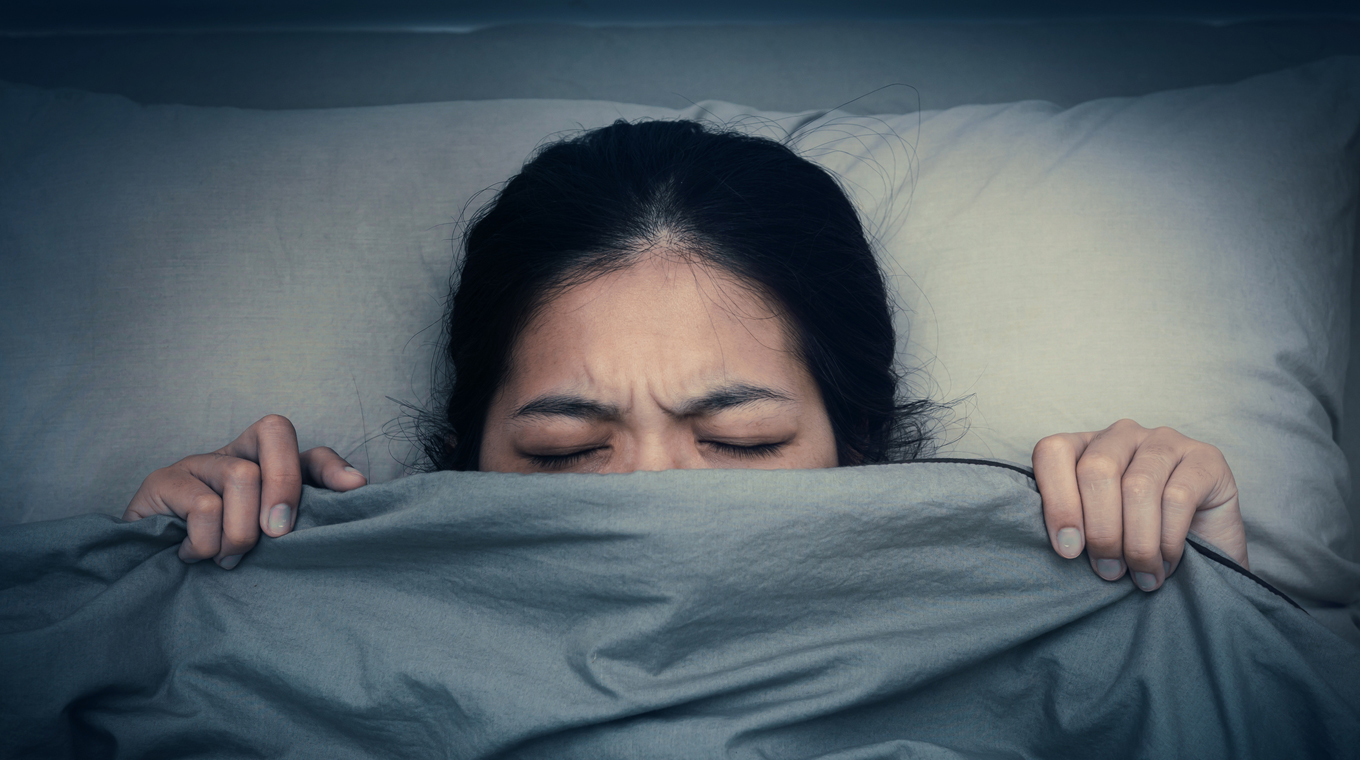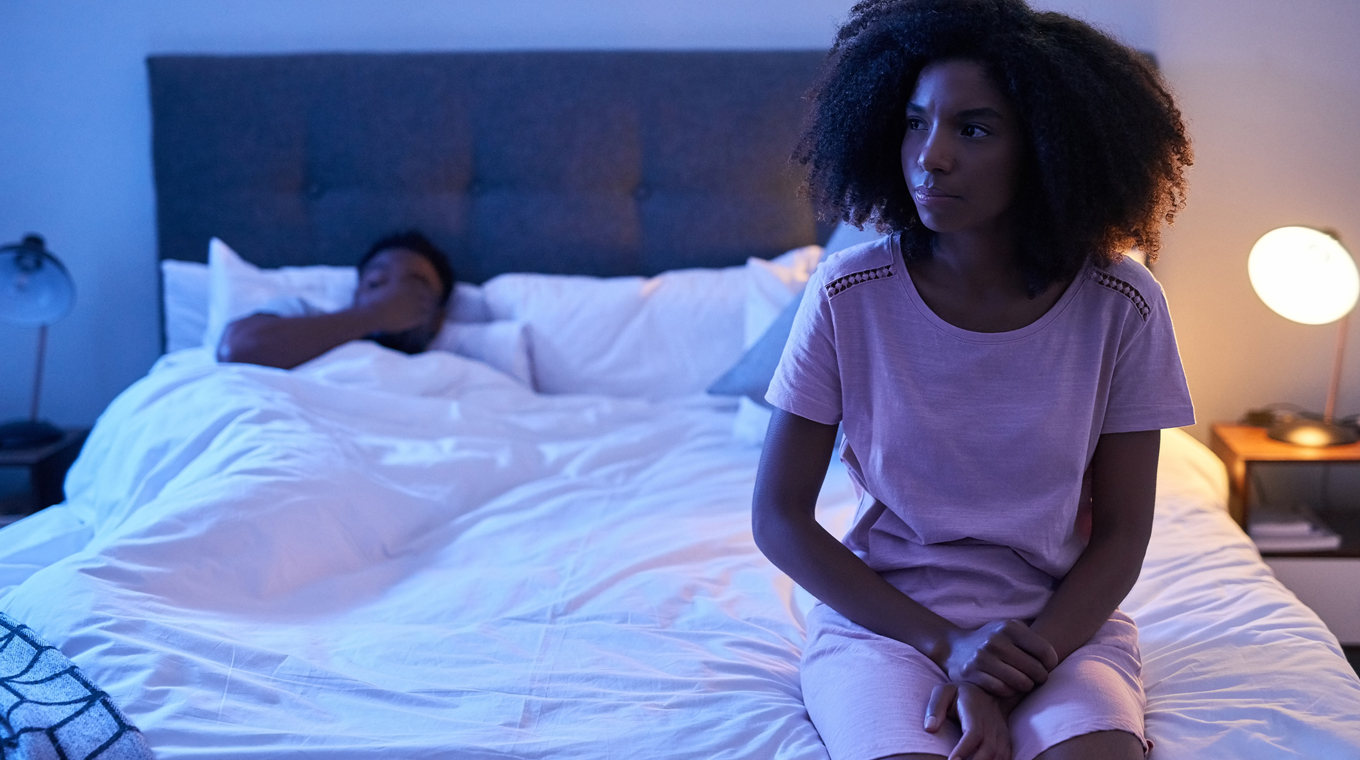
In this article
Many people have reported having quarandreams — super-vivid dreams during the pandemic — since the the coronavirus outbreak and lockdown started. From the apocalyptic to the mundane, you may be curious about what they mean or if they’re similar to the intense dreams you get when you’re pregnant. Perhaps your children are also suffering from nightmares and you’d like to find out why we’re collectively as a people going through it.
“I’ve had endless bonkers dreams since this all started,” mom of three Holley Replogle-Wong confided to Mom.com. “They used to verge on nightmares — the kind where it isn’t quite bad enough to startle you awake but disturbing enough that you don’t feel rested when you do wake up — and were usually of an apocalyptic sort.”
What are quarandreams?

Dreams are hallucinations that occur during certain stages of sleep — most notably, during REM (rapid eye movement) sleep. During this time, our bodies replenish neurotransmitters, calibrate our temperature regulation, and consolidate and organize our memories. Nightmares are usually characterized as more distressing and scary, usually brought upon by stress, anxiety, or even medications.
As for quarandreams, think of them as vivid dreams brought upon by the lockdown and anxieties over the coronavirus. While most dreams immediately fade upon waking unless we intentionally strive to recall them, vivid dreams are especially intense dreams that we can usually remember a lot about with little effort.
Merry Spooner Kuchle experienced a dream fraught with anxiety. “Last night I dreamed I was in university and living in a dorm. But I kept losing my purse and keys, over and over,” she told Mom.com. “While out and about, I helped a friend who was a flight attendant (not in real life by the way) get ready to leave in her car. Things were all packed up, but then I kept finding things that had fallen out. Every time I went back, there was more and more and more.”
“I think that dreams are just thinking in a different biochemical state,” explained Harvard University psychologist and dream researcher Deirdre Barrett to CNN. “We’re thinking about all of our usual thoughts and concerns, but in this biological state that’s much more visual, much more intuitive, much less logical and linear. So that’s why you see dreams having these fantastic visual metaphors for things.”
Why are we having quarandreams?

According to Keri Turner Psy. D. of the Center for Modern Therapy, these dreams are indicative of our current tumultuous situation. “People are experiencing so much loss, change, and increased anxiety right now that it is hard to be aware of the actual feelings that may be present,” Dr. Turner explained to Mom.com. “Our minds may be processing these heightened emotions through our dreams, integrating the confusion, fear, and unknown.”
“The COVID-19 virus was a visible 3D organism multiplying itself in the ocean and crawling on the ground,” mom of two Roodlyne Mason told Mom.com about a dream she had. “I was working with Clark Kent undercover because the world hated Superman and he had to hide. This guy from church was frantic, asking for my help to locate his kids, then I realized I couldn’t find my kids.” Mason said she woke up in a puddle of sweat and fear.
Mom of two Christy McConville also had a dream revolving around the virus and the safety of her kids. “Two nights ago I dreamed my 5 year old was still a baby, and my mom had built me a coronavirus bunker for us, with lots of TVs to watch the news,” she told Mom.com. “It is anxiety dreams mixed with confusion about the specific year in which I’m living.”
Barrett also noted to CNN that as she was collecting dreams during the current pandemic, she saw many similarities to the dreams of Americans post 9/11, but this phenomenon was unique in how global it was.
How can we deal with these anxiety dreams?

Dr. Turner advised paying attention to what emotions have been elicited during the dream. “Upon waking, ask yourself what feelings and themes were present. These feelings and themes can inform you of what you may be struggling to experience in your waking hours. Then, allow yourself time and space to honor these emotions in your waking hours.”
She suggested talking to a friend or family member about the dreams or engaging in self care. “Even simply acknowledging the challenges and having compassion for yourself that you are going through such a hard time can help,” said Dr. Turner.
As an avid reader, Replogle-Wong confessed she perhaps has read too much post-apocalyptic fiction and nonfiction that may have influenced her dreams. She struck a deal with her husband. “I had to lay off the news and trust him to communicate anything really important to me,” she said. “The nightmarish dreams went away, but the dreams are still vivid and weird.”







